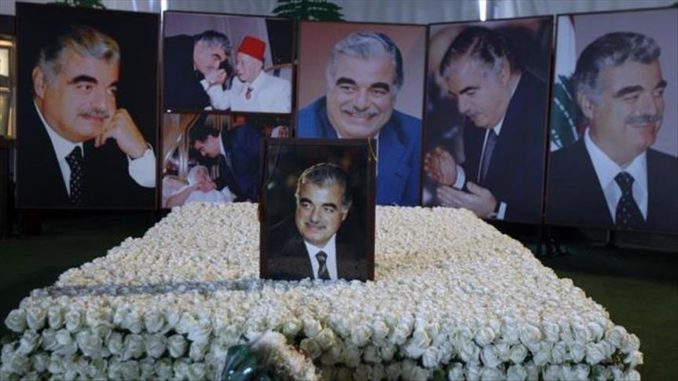
By Anadol Agency
ANKARA
Although 14 years has passed since the assassination of Lebanese Prime Minister Rafiq Hariri, his murder — which rocked Beirut on Feb. 14, 2005 — remains dogged by question marks.
Rafiq Bahaa al-Din al-Hariri was born on Nov. 1, 1944 in the Lebanese city of Sidon. After his graduation from Beirut Arab University, he worked in Saudi Arabia, where he amassed a fortune and became a prominent construction magnate.
Hariri obtained Saudi citizenship in 1978. Shortly afterward, he acquired French firm Oger, merging it with his own company to become Saudi Oger Ltd, which became one of the largest contracting companies in the Arab world.
Over the years, his empire expanded to include a network of banks and other businesses in Lebanon and Saudi Arabia. By the early 1980s, he was considered one of the world’s 100 richest men.
In 1992, Hariri became Lebanon’s prime minister at the relatively young age of 48.
After resigning the post six years later, he assumed the premiership again in 2000.
In 2004, Hariri headed up five separate governments before stepping down once again on Nov. 20 of the same year.
On Feb. 14, 2005, Hariri was killed by a massive car-bomb as his convoy passed near Beirut’s Al-Bayyal Complex.
His assassination triggered countrywide protests that forced Syria — which some had accused of orchestrating the murder — to withdraw all its forces from Lebanese territory.
Later the same year, Hariri’s son, Saad, succeeded his father in the premiership after winning elections.
In 2007, a Special Tribunal for Lebanon was drawn up to look into the elder Hariri’s assassination.
In 2011, the tribunal issued arrest warrants for four Hezbollah members suspected of involvement in the crime.
Hezbollah, for its part, has refused until now to hand over the suspects.
In 2017, the UN extended the tribunal’s mandate for three more years, and the incident still officially remains under investigation
